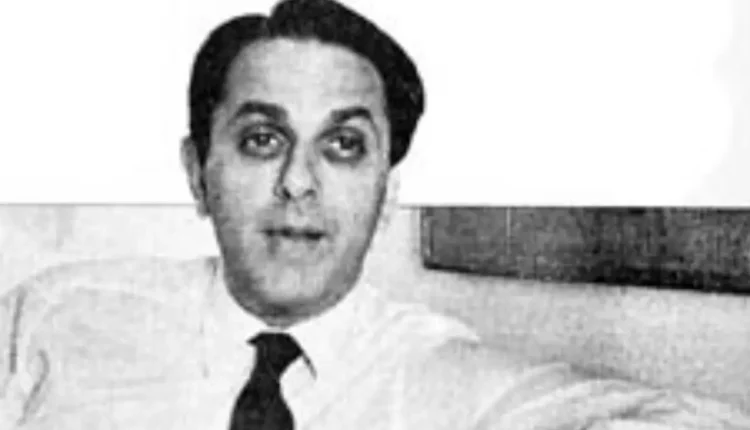Neville Ness Wadia (22 August 1911 – 31 July 1996) was a remarkable figure in Indian business and philanthropy. As a member of the illustrious Wadia family, Neville Ness Wadia expanded his family’s textile business into one of India’s largest enterprises and generously contributed to the welfare of the Parsi community.
Early Life and Education of Neville Ness Wadia
Neville Ness Wadia was born in Liverpool to Sir Ness Wadia and Lady Evelyne Clara Powell Wadia. His grandfather, Nowrosjee Wadia, and grandmother, Bai Jerbai, were prominent figures in the Indian shipbuilding industry during the 1840s. Raised in opulence in England, Neville received his education at Malvern College and Trinity College, Cambridge. Despite his privileged upbringing, Wadia’s journey was far from conventional.
Marriage and Personal Life
In 1938, Neville Ness Wadia married Dina Jinnah, the only child of Muhammad Ali Jinnah, the founder of Pakistan, and his wife, Rattanbai Petit. The inter-faith marriage faced criticism, as Dina was a Muslim, and Wadia was a Parsi. The couple had two children, Nusli Wadia and Diana Wadia. Unfortunately, their marriage did not last, and they divorced in 1943.
Although Neville Wadia was raised as a Christian, he later converted to Zoroastrianism, the faith of his ancestors. This decision reflected his deep connection to his heritage and the Parsi community.
Rise in the Textile Industry
Neville Wadia’s entry into the family business was anything but glamorous. In 1933, his father, Sir Ness Wadia, known as the Cotton King, thrust him into Bombay Dyeing, one of India’s leading textile companies.
Starting as a supervisor for loading cotton bales onto trucks, Neville worked his way up from the most junior level in each department. His dedication and perseverance paid off, and in 1952, he succeeded his father as chairman of Bombay Dyeing.
Under Neville Wadia’s leadership, Bombay Dyeing became one of India’s most successful and quality-conscious textile concerns. He founded the Cotton Textiles Export Promotion Council, heading it for 12 years, and played a pivotal role in promoting Indian textiles on the global stage. His involvement in the real estate business in Mumbai further cemented his status as a visionary leader.
Philanthropy and Contributions
Neville Wadia’s philanthropic endeavors were as remarkable as his business achievements. He was instrumental in building new wings and upgrading several hospitals in Bombay founded by his family.
Recognizing the importance of education, he established the Modern Education Society’s Neville Wadia Institute of Management Studies and Research in Pune. His contributions to the Parsi community were extensive, setting up numerous charitable trusts to support various initiatives.
Legacy and Impact
In 1971, facing financial challenges, Neville Wadia considered selling Bombay Dyeing to R. P. Goenka and planned to settle abroad. However, his son, Nusli Wadia, convinced him otherwise by garnering 11 percent of the company’s shares and persuading employees to pool their savings to buy shares. This collective effort prevented the sale and reaffirmed Neville’s commitment to the company and his country.
After his retirement as chairman of Bombay Dyeing in 1977, Neville Ness Wadia was succeeded by his son, Nusli Wadia, who continued the family legacy. Neville Wadia’s life was a testament to his resilience, leadership, and dedication to his heritage. He passed away in Mumbai at the age of 84, leaving behind a legacy of business excellence and philanthropic contributions.
Also Read:Nusli Neville Wadia: Balancing Heritage and Modern Business Success

